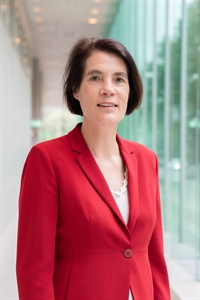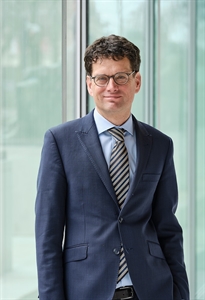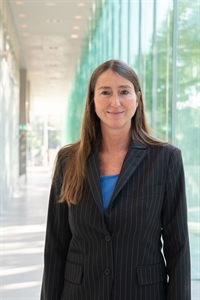Annual report
The Supreme Court of the Netherlands consists of three components: the Supreme Court itself, the Procurator General's Office at the Supreme Court, and the Operations Directorate. In addition, the Supreme Court has three divisions classified by field of law: the civil division, the criminal division and the tax division. In this annual report, the Supreme Court's various components and divisions account for their work in the past year.
At its core, the work of the Supreme Court is based on the fact that the rights, obligations and interests of people and organisations in our democratic state under the rule of law are protected by the law. Everyone working at the Supreme Court is committed to fulfilling that role of the Supreme Court in the legal system and in society, where legal issues arise in a changing national and international environment. The values of the judiciary, such as integrity, expertise and diligence, are not only essential to the work performed in the past year, but they must also inform the Supreme Court's work in the future and ensure the quality thereof. In a changing society, this requires orientation towards the environment and protection of the function of justice for people and organisations in a democratic state under the rule of law.
This includes, for example, the availability of historical information about the importance of the Supreme Court's function to people and organisations. For example, more and more information becomes available today on older court cases that affect the role of the law in society. In 2023, the thousandth "landmark judgment" was published: a pre-2000 judgment that constitutes a landmark in the development and formation of law. Furthermore, the Supreme Court opened its doors to the public in 2023 – as it did in previous years. Unlike in previous years, however, in 2023 the Supreme Court did so as part of a guided tour [Rondje Rechtsstaat], the closing day of the Week of the Rule of Law [Week van de Rechtsstaat]. During this week, which was co-organised by the Supreme Court, the important message of the rule of law was conveyed to the public.
Being mindful of what is going on in the national and international context of the Supreme Court is a dynamic process that requires and receives constant attention by the Supreme Court in the performance of its duties. In 2023, this dynamic was given central stage at the "EUnited in Diversity II" conference, which took place at the Supreme Court building on 31 August and 1 September 2023. Presidents and members of the constitutional and supreme courts of the Member States of the European Union, of the Court of Justice of the European Union and of the European Court of Human Rights met in The Hague to discuss the core values on which the European Union is founded, such as the democratic rule of law and the protection of human rights.
Safeguarding the values of the Supreme Court's case law now and in the future means that there will always be a need for people to work together from their extensive knowledge and work experience. The Supreme Court celebrated the 45th anniversary of its Research Department in 2023. Employees of the Research Department – talented, often young lawyers – play an essential role in supporting the court and the Procurator General’s Office. To mark this 45th anniversary, the Supreme Court podcast was launched. In this podcast, lawyers from the Research Department talk about their work at the Supreme Court.
All in all, the annual report shows that in 2023, too, the Supreme Court has been able to perform its duties in the interest of uniformity of law, legal development and the legal protection of people and organisations, thanks in part to the efforts of the people working at the Supreme Court.
Dineke de Groot, President
Edwin Bleichrodt, Procurator General
Vera de Witte, Director of Operations



- Voorwoord
-
Een zaak van begin tot eind
- Ashe Sahebdin, dossierbehandelaar
- Timon Tisseur, gerechtssecretaris
- Madhvi Ramparichan, wetenschappelijk medewerker
- Sanaz Kousedghi, wetenschappelijk medewerker
- Ton Hartlief, advocaat-generaal
- Annemarie ter Heide, raadsheer
- Rachel Prevoo, documentalist
- Hester Wattendorff en Edgar du Perron, persraadsheren
-
De Hoge Raad
- Contacten met de wetgever
-
Het parket bij de Hoge Raad
- Cassatie in het belang der wet
- Herziening
- Schorsing en ontslag van rechters
- Strafrechtelijke vervolging van bewindspersonen of Kamerleden
- Toezicht op het Openbaar Ministerie
- Toezicht verwerking persoonsgegevens gerechten en parket bij de Hoge Raad
- Externe klachtzaken
- Interne klachtzaken
- Aanwijzen ander gerecht
- Betekening van exploten
- Overige correspondentie
- Samenstelling parket 31-12-2023
-
Bedrijfsvoering
-
Annual report
- The Supreme Court
- The Civil Division
- The Criminal Division
- The Tax Division
- Law of the European Union
- The Fourth Division
- Internal complaint cases
- Contacts with the legislator
- The Procurator General’s Office at the Supreme Court
- Cassation in the interest of the law
- Review
- Supervision of the Public Prosecution Service (OM)
- Right of complaint (external authority)
- Other correspondence
